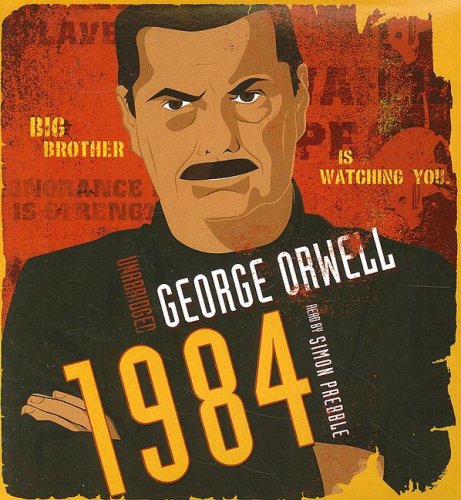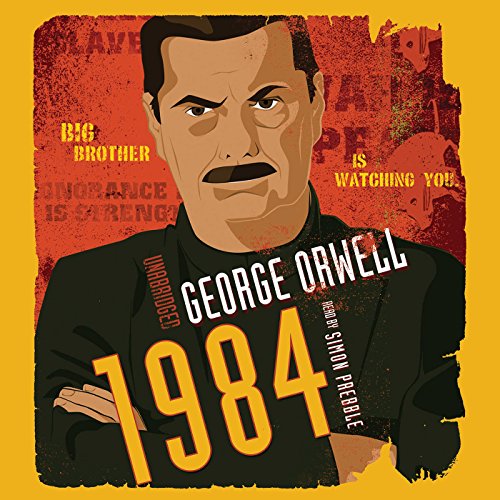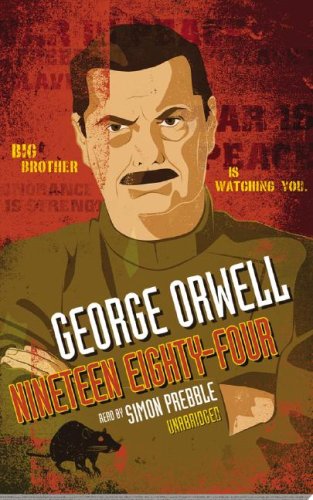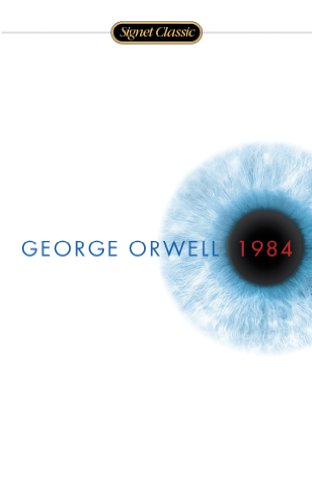
Orwell depicts a gray, totalitarian world in which privacy does not exist, news is manufactured according to the authorities’ will, and those with unorthodox ideas are brainwashed or put to death. Orwell’s 1949 nightmare vision of the world we were becoming is still the great modern classic of negative Utopia.”Outside, even through the shut window pane, the world looked cold. Down in the street little eddies of wind were whirling dust and torn paper into spirals, and though the sun was shining and the sky a harsh blue, there seemed to be no color in anything except the posters that were plastered everywhere.”
The year is 1984; the scene is London, largest population center of Airstrip One.
Airstrip One is part of the vast political entity Oceania, which is eternally at war with one of two other vast entities, Eurasia and Eastasia. At any moment, depending upon current alignments, all existing records show either that Oceania has always been at war with Eurasia and allied with Eastasia, or that it has always been at war with Eastasia and allied with Eurasia. Winston Smith knows this, because his work at the Ministry of Truth involves the constant “correction” of such records. “‘Who controls the past,’ ran the Party slogan, ‘controls the future: who controls the present controls the past.'”
In a grim city and a terrifying country, where Big Brother is always Watching You and the Thought Police can practically read your mind, Winston is a man in grave danger for the simple reason that his memory still functions. He knows the Party’s official image of the world is a fluid fiction. He knows the Party controls the people by feeding them lies and narrowing their imaginations through a process of bewilderment and brutalization that alienates each individual from his fellows and deprives him of every liberating human pursuit from reasoned inquiry to sexual passion. Drawn into a forbidden love affair, Winston finds the courage to join a secret revolutionary organization called The Brotherhood, dedicated to the destruction of the Party. Together with his beloved Julia, he hazards his life in a deadly match against the powers that be.
Newspeak, doublethink, thoughtcrime–in 1984, George Orwell created a whole vocabulary of words concerning totalitarian control that have since passed into our common vocabulary. More importantly, he has portrayed a chillingly credible dystopia. In our deeply anxious world, the seeds of unthinking conformity are everywhere in evidence; and Big Brother is always looking for his chance. –Daniel Hintzsche
Product Features
- Used Book in Good Condition





